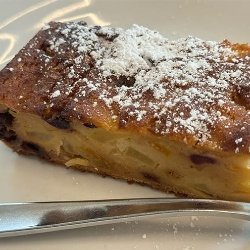

Some items available at Fuji Mart, the supermarket I often go to. They have just about everything, like a supermarket in Japan.


The tofu is made in Australia, so you can get it fresh. They have momen (cotton) and kinu (silken) tofu, as well as okara (soybean pulp). And they also have frozen fish.


The meat is also Australian. They don’t have pork belly at regular supermarkets, so I buy a whole lot of frozen pork belly packs. Apart from that, they also sell sliced wagyu beef, tongue, and tripe.


Apart from food items, they also sell shaved ice machines and rice cookers. You can use this rice cooker with Australian voltage. The price is an amazing $759 (about 59,000 yen).


They also have Japanese tableware. And you can get drugstore products like shampoos, conditioners, bath agents, and disposable hand warmer packs. The drugstore products are a little more expensive than the food products.


They have candies, and even a 100-yen ($2.50) corner.


I make pickles using rice bran, so I occasionally buy rice bran for top ups. They don’t have canned white peaches in Australia, so I sometimes feel like some, but at $13.30, or about 1,000 yen, per can, I have to think about it a little first.
With this many different kinds of Japanese foods available, I can have just about as much of them on my dining table as if I were living in Japan, so I don't often miss any Japanese foods living overseas. Although there are some things you can only eat in Japan, like fresh fuki (butterbur), tara-no-me (fatsia sprouts), white peaches, loquats, Japanese cherries, and other seasonal fruits and vegetables, as well as fresh shellfish like sazae (horned turban shellfish) and shijimi (basket clams), so one of the joys of my visits back to Japan is eating foods that I can't get in Australia. I want COVID-19 to end as soon as possible, so we come and go freely between Japan and Australia again.




















































